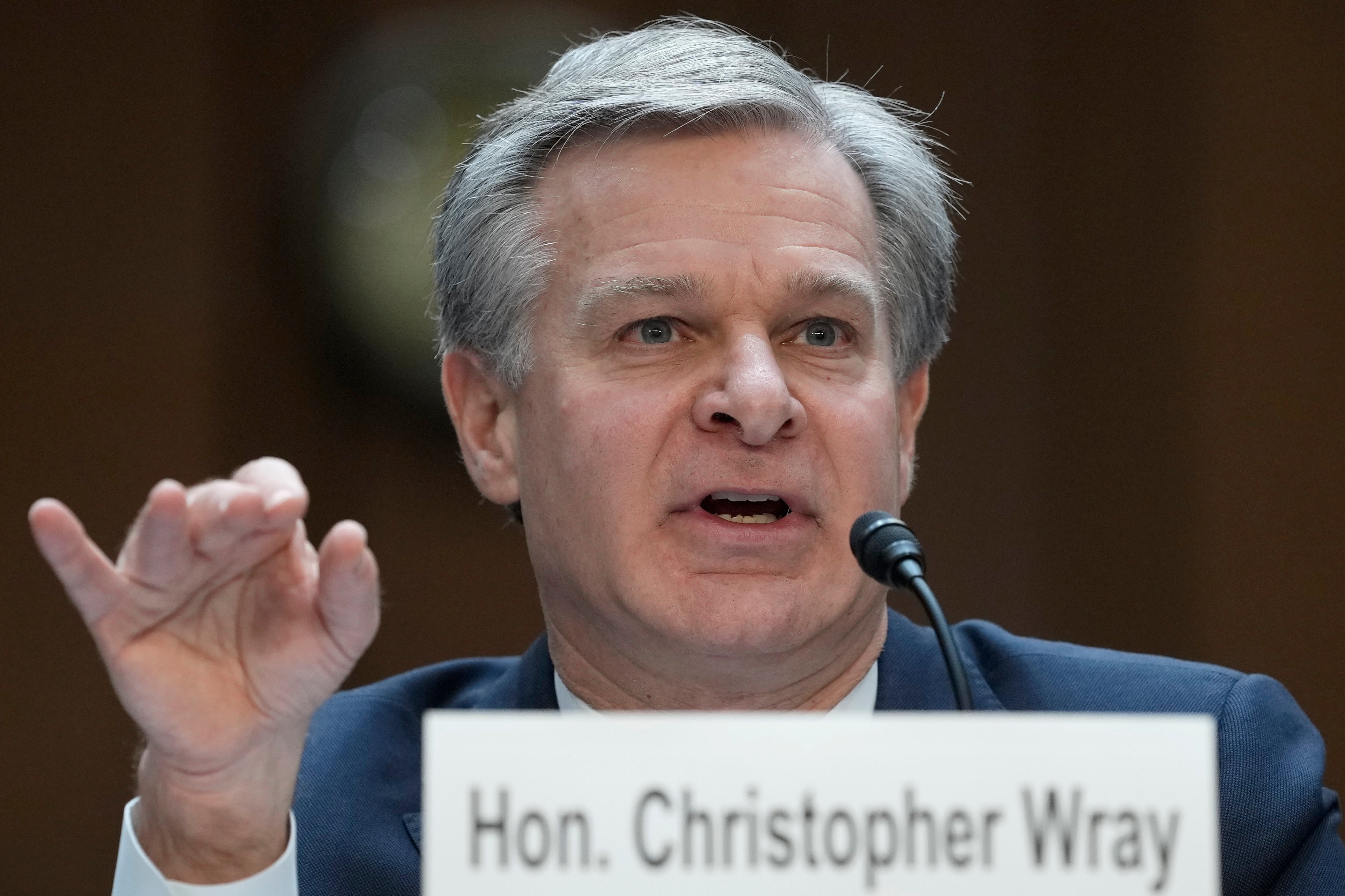FBI chief makes fresh pitch for spy program renewal and says it'd be 'devastating' if it lapsed
FBI Director Christopher Wray is making a fresh pitch for the reauthorization of a U.S. government surveillance tool set to expire at the end of the year

FBI Director Christopher Wray called Tuesday for the reauthorization of a U.S. government surveillance tool set to expire at the end of the year, warning Senate lawmakers that there would be “devastating” consequences for public safety if the program is allowed to lapse.
At issue is Section 702 of the Foreign Intelligence Surveillance Act, which allows the U.S. government to collect without a warrant the communications of targeted foreigners outside the United States.
The program, created in the aftermath of the Sept. 11, 2001, attacks, is due to expire at the end of this month unless Congress votes to reauthorize it. But Republican and Democratic lawmakers alike have balked at renewing the program in its current form, recommending a slew of reforms through competing legislative proposals that are jockeying for support in the coming weeks.
The fact that Wray devoted a significant portion of his prepared remarks to the Senate Judiciary Committee to the issue underscores its importance to the FBI, particularly at a time when the Israel-Hamas war has drawn heightened concern about the possibility of extremist violence on U.S. soil and contributed to threats being at a “whole other level” since the Oct. 7 attacks.
Wray, calling the authority indispensable, told the committee, "702 allows us to stay a step ahead of foreign actors located outside the United States who pose a threat to national security.
“And the expiration of our 702 authorities would be devastating to the FBI’s ability to protect Americans from those threats.”
Wray, who took over as director in 2017, said that what made the current climate unique is that “so many of the threats are all elevated at the same time.”
But the 702 program has come under scrutiny in the last year following revelations that FBI analysts improperly searched the database of intelligence, including for information about people tied to the Jan. 6, 2021, riot at the U.S. Capitol and the racial justice protests of 2020.
Those concerns have united longtime vocal champions of civil liberties, including Democratic Sen. Ron Wyden of Oregon, as well as Republican supporters of former President Donald Trump who are still angry over surveillance missteps made during the Russia investigation of 2016.
Some of the legislative proposals designed to reform 702 would require the FBI to obtain a warrant before searching the intelligence repository for information about Americans and others inside the U.S.
But Wray and Biden administration officials said such a requirement would be both legally unnecessary and would hold up the FBI In trying to intercept fast-moving national security threats.
If a warrant requirement is the path chosen, Wray said, “What if there were a terrorist attack that we had a shot to prevent, but couldn’t take it, because the FBI was deprived of the ability under 702 to look at key information already sitting in our holdings?”
Democratic Sen. Dick Durbin, the chairman of the Senate Judiciary Committee, summed up the issue by telling Wray that though “there was no question” that Section 702 was a “critical tool for collecting foreign intelligence” but the Illinois lawmaker supports significant reforms meant to protect the privacy of “innocent Americans.”
Subscribe to Independent Premium to bookmark this article
Want to bookmark your favourite articles and stories to read or reference later? Start your Independent Premium subscription today.
